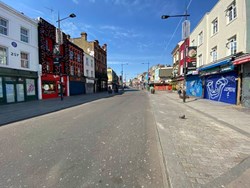Sign up for free!
- to listen to our online radio channel, Share Radio;
- to receive our weekly newsletter with details of our latest talk programmes, weekly comment and podcasts; and
- for access to our huge audio podcast library containing thousands of programmes covering politics, economics, philosophy and entertainment.
It's all free of charge, and practically no ads!
If you like what you hear, please tell your friends and family about it and ask them to sign up too.
Finally, please note that your receipt of our weekly newsletter is an integral part of our streaming and podcast service, but your personal data will only be held for your Share Radio relationship: it will not be shared with any other parties (Privacy Policy)
Sign up here!










